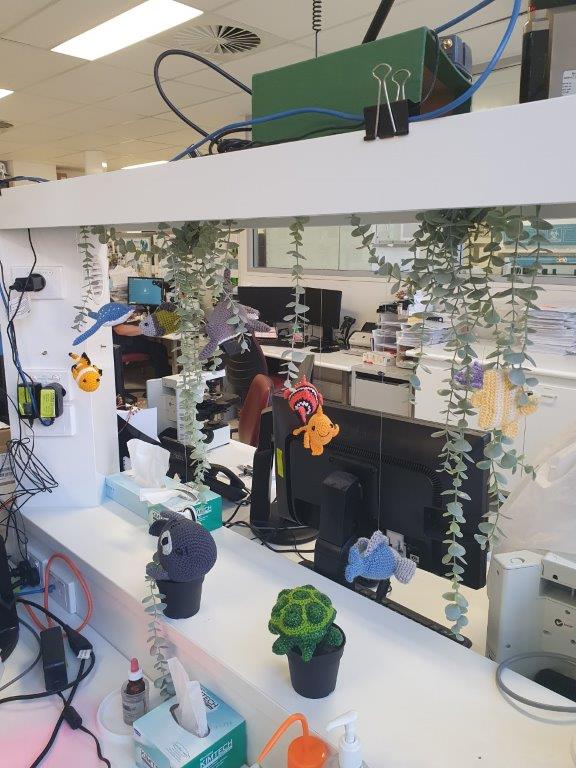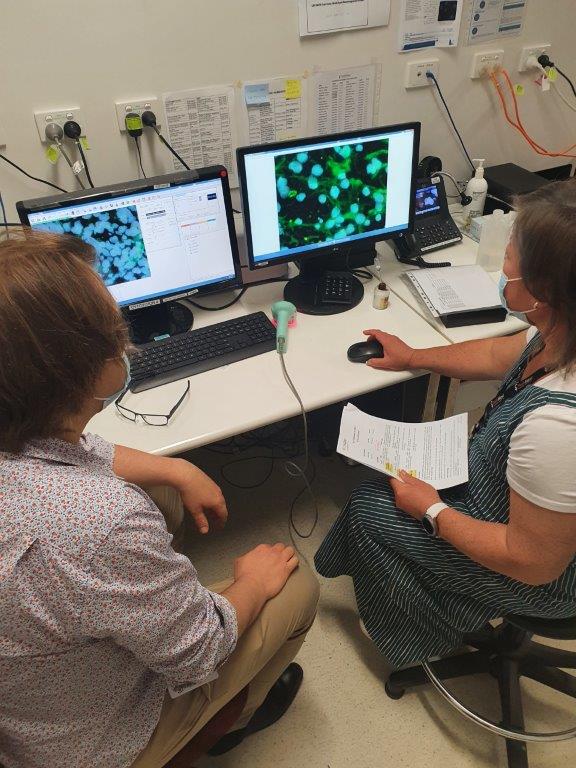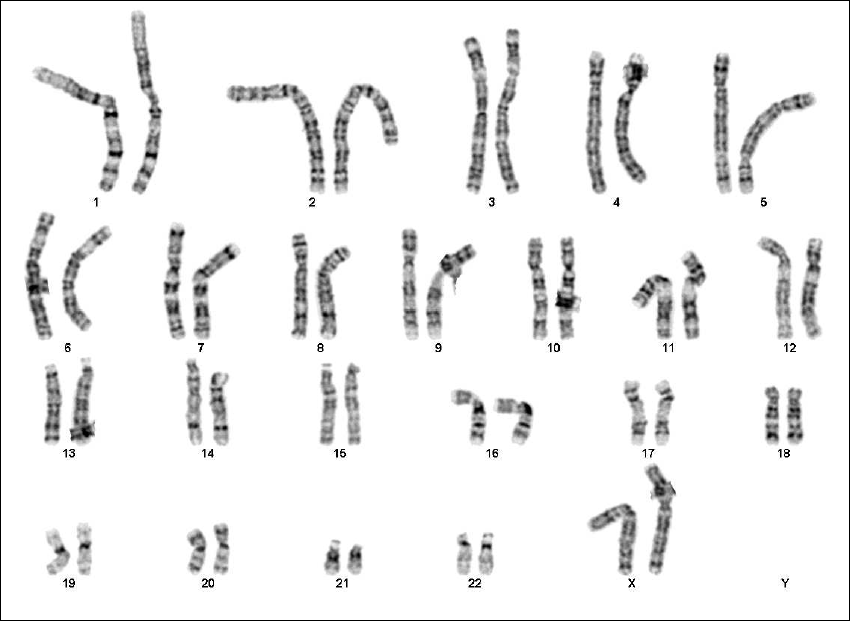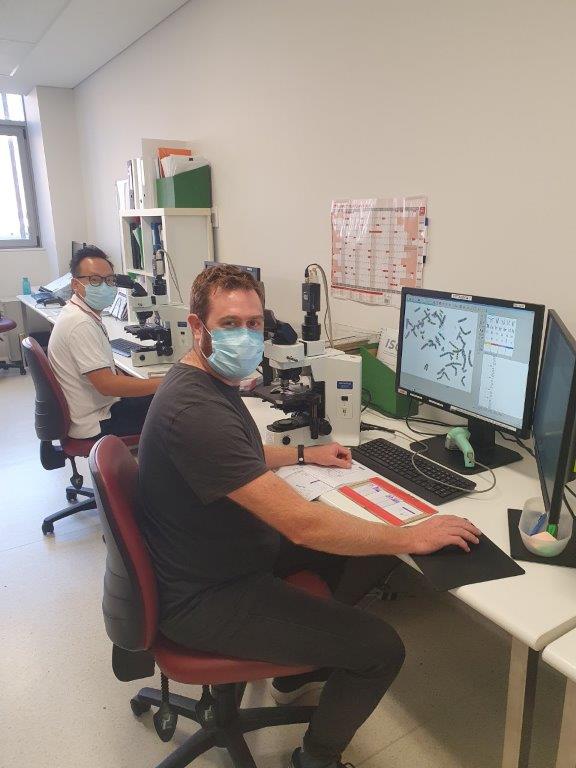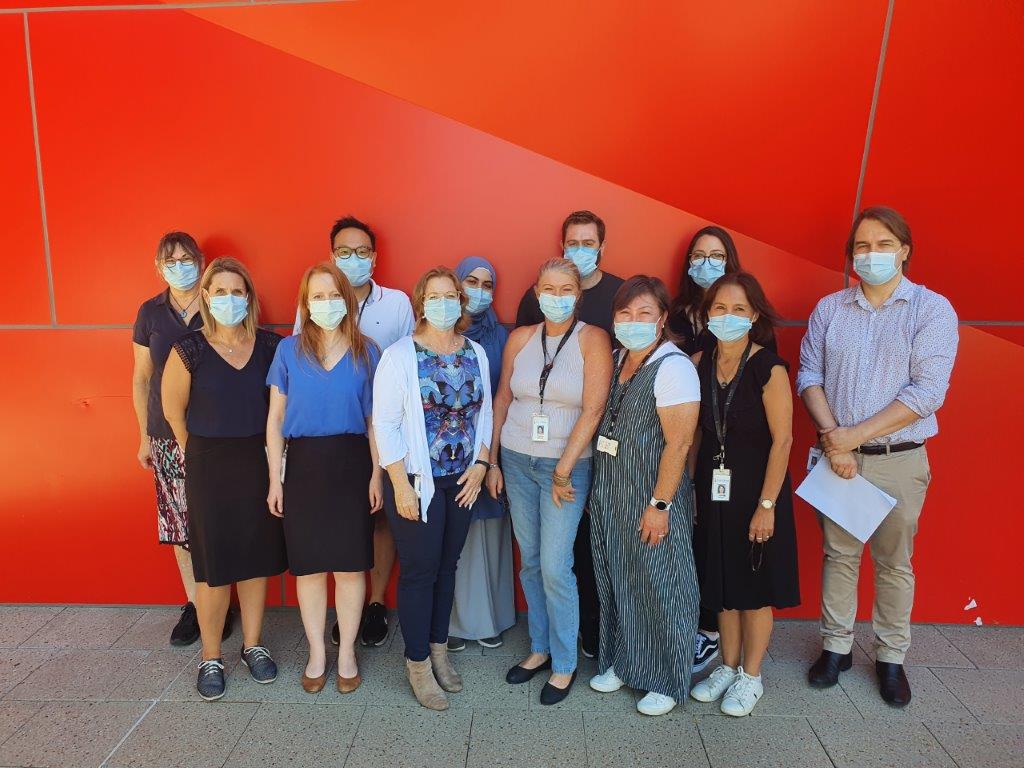FISH testing - a PathWest collaboration
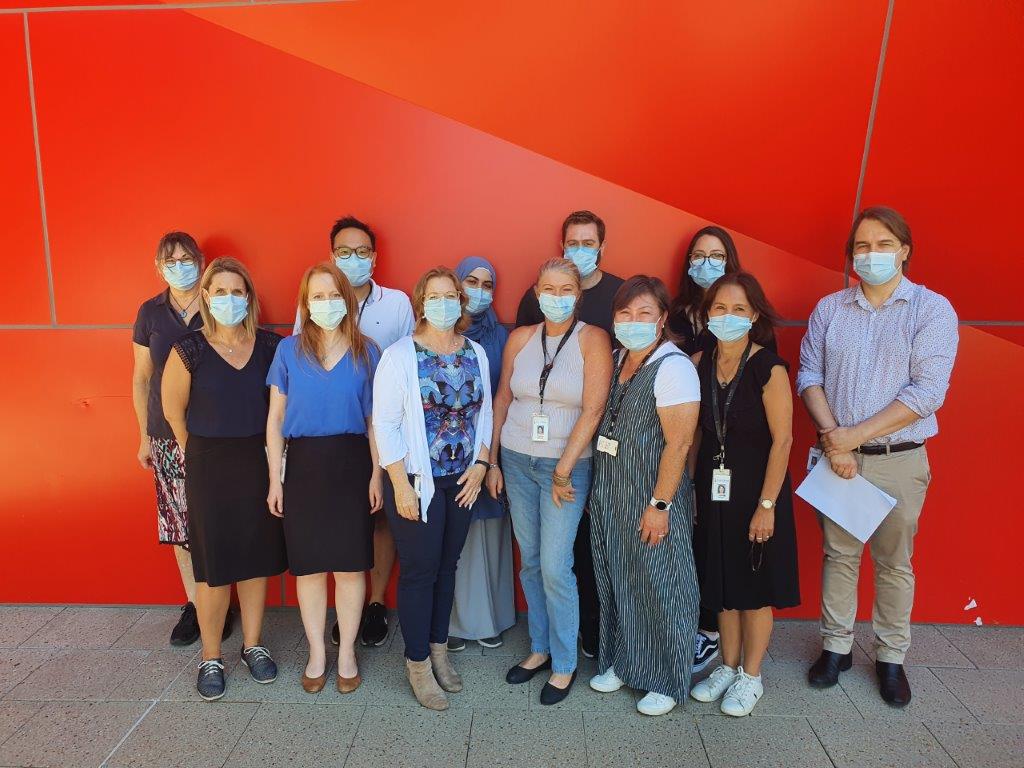 The Conventional Cytogenetics and FISH team with consultants Dr Chris Van Vliet (Anatomical Pathologist) and Dr Sarah Nickerson (Genetic Pathologist)
The Conventional Cytogenetics and FISH team with consultants Dr Chris Van Vliet (Anatomical Pathologist) and Dr Sarah Nickerson (Genetic Pathologist)
Diagnostic Genomics at PathWest recently featured in relation to the ongoing collaboration with Genetic Services of WA in the context of diagnosis of rare diseases.
Another important collaboration within PathWest is an inter-departmental one with Diagnostic Genomics (DG) and Anatomical Pathology (AP) in the area of FISH testing on oncology samples.
FISH (Fluorescence In Situ Hybridisation) is a technique that uses DNA probes, which have different coloured fluorescent molecules attached to them, to target specific areas of the genome.
FISH tests are routinely used in the diagnosis, subclassification and prognostication of a variety of tumours, including;
- lymphomas
- soft tissue malignancies
- lung cancers
- mesotheliomas
- brain tumours
- salivary gland cancers
- melanomas
- tumours of childhood, and more.
Confirmation of certain abnormalities e.g. ALK, ROS1 and NTRK gene rearrangements, allow patients to qualify for gene-specific inhibitory treatments which can greatly improve clinical outcomes.
Crocheted FISH tank
Like their namesakes of the sea, the technique is bright and colourful, however it takes years of experience to learn how to interpret these images into a result for the patient.
The oncology specimen that is used for this testing is usually formalin-fixed paraffin embedded tissue that is prepared and examined by the AP department. A team of anatomical pathologists collaborates closely with the FISH scientific team (part of the Cytogenetics department, located within DG) to ensure analysis of gene-specific fluorescent signals is focussed on cancer cells within tissue samples.
Input from the anatomical pathologists allows this genetic result to be interpreted in the context of the diagnosis rendered on light microscopic examination. The FISH results also inform critical treatment decisions for cancer patients under the care of medical oncologists and clinical haematologists.
FISH analysis in action (Chris Van Vliet and Joanne Peverall)
FISH is a methodology from a larger arsenal of techniques in the field of Cytogenetics, studying DNA, in the form of chromosomes, at the cellular level. The end result of constitutional cytogenetics testing is the production of a karyotype (pictured).
Constitutional cytogenetic testing is performed at QEII under the supervision of Genetic Pathologists. This testing is performed on blood as well as prenatal samples such as amniotic fluid and chorionic villi in the context of rare but collectively common chromosomal disorders and reproductive health. Blood samples are analysed looking for cytogenetic abnormalities that have a direct clinical impact for the patient through provision of a diagnosis and management avenues (e.g. Down Syndrome, Turner Syndrome etc.) or affecting reproductive decisions (e.g. for carriers of balanced chromosomal rearrangements).
Conventional cytogenetics analysis in action - Jeffrey Hiew and Steve Lukeis (foreground).
Pre-natal cytogenetic testing is an integral part of pregnancy care due to inherent risk of fetal cytogenetic abnormalities conditional or independent of prior family history. Prenatal samples are collected through invasive procedures following abnormal ultrasound findings or abnormal pregnancy screening test results (such as NIPT or first trimester screening) and the highly specialised cytogenetics team ensures testing goes seamlessly for those precious samples.
Prompt communication and continuous collaboration between DG and Maternal Fetal Medicine specialists across the state ensures efficient cytogenetic pathology integration into high standard pregnancy healthcare.
Conventional cytogenetics is one of the oldest genetic techniques (since the early 1970s) but is still developing in the modern pathology world.
One of the latest developments is digitalisation with artificial intelligence in conventional cytogenetics and FISH image analyses and the team are hopeful to see this implemented soon.
The Conventional Cytogenetics and FISH team with consultants Dr Chris Van Vliet (Anatomical Pathologist) and Dr Sarah Nickerson (Genetic Pathologist).


